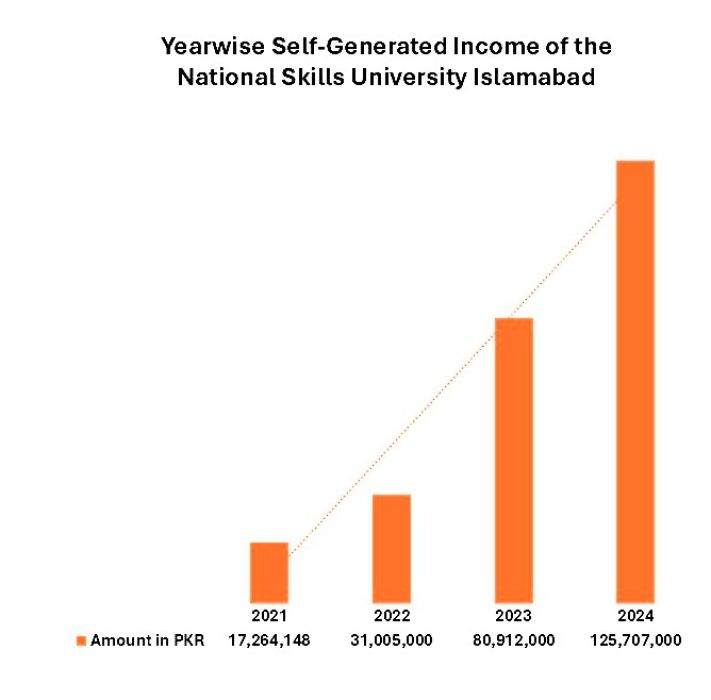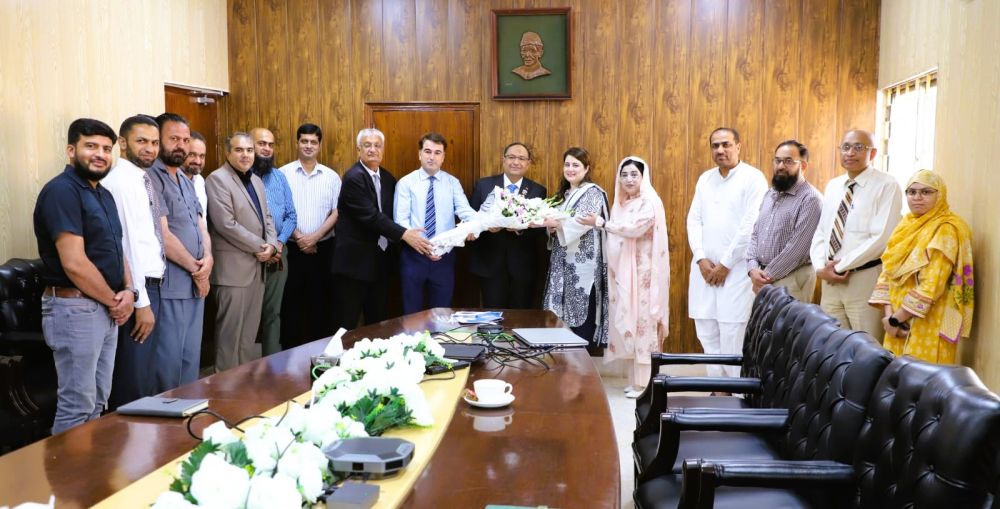Educational Institutions Digital Transformation - A Success Story from the Higher Colleges of Technology (HCT), United Arab Emirates
Posted 1 year ago
Editorial By: Prof. Dr. Muhammad Mukhtar, Vice Chancellor, National Skills University Islamabad Pakistan
The UNESCO-UNEVOC recognized Institutional Performance Framework and Management by the Higher College of Technology as a Promising Practice.
In an era where digital innovation is reshaping almost every educational discipline, the Higher Colleges of Technology (HCT) in the United Arab Emirates is not just following the trend but setting a new benchmark in higher education. Launched in November 2017, HCT's Institutional Performance Framework (IPF) and Management System is a unique and pioneering example of how digitalization can transform organizational practices and boost competitiveness.
As the UAE's most extensive applied higher educational institution, HCT has a student body of around 23,000 across 16 campuses, supported by over 2,000 staff members from more than 80 nationalities. With 71 programs across six faculties, HCT has awarded over 89,000 qualifications to approximately 65,000 graduates, reflecting its commitment to innovative, job-focused education.
The transformative journey began with the realization that HCT's vision, mission, and strategic goals needed a robust, impact-driven managerial practice. This led to the development of the Institutional Performance Management System (IPMS), an advanced digital infrastructure designed to enhance data accuracy, reliability, and process efficiency.
Key to the success of this initiative was the active involvement of stakeholders. Students, alumni, staff, employers, and industry partners didn't just play a role, they were instrumental in shaping the IPF and its implementation through IPMS. The objective was clear: to address the deficiencies of the previous management framework and align all HCT business units, including academic divisions, campuses, and administrative departments, towards common strategic goals.
Since its inception, the IPMS has been continually refined, embodying HCT's dedication to fostering institutional agility and innovation. Integrating a balanced scorecard methodology aligned with national priorities has enabled HCT to embed goals and objectives that drive future readiness. This digital transformation has made performance contracts accessible globally, significantly reducing the time and effort required for data analysis.
The impact of this innovative approach has been profound. Business units now operate in unison toward institutional objectives, fostering a performance-driven culture across HCT. Moreover, implementing a digital system has empowered the leadership and management teams to make proactive, data-driven decisions, ensuring that HCT is always one step ahead in its operations.
The validation process, incorporating KPI data integration and automation, has further enhanced reliability and efficiency. The Institutional Performance Reporting Process cycle time has been reduced by 21 days, leading to a 23% cost reduction. Data accuracy has surged to 95%, on-time KPI reporting has reached 99%, and the quality of evidence stands at 95%. It culminated in an overall performance rating of 92%, with HCT ranking third nationally, up from 85% in 2017.
It is important to mention here that the path to digital transformation was not without its challenges. Resistance to change among employees was a significant hurdle, as manual processes made way for automated systems. HCT tackled this head-on through intensive research, benchmarking, and stakeholder engagement, ensuring the new system was tailored to address specific areas for improvement. This meticulous approach not only helped secure staff buy-in but also demonstrated that 'what gets measured, gets done.'
Looking ahead, HCT commitment to continuous improvement and digital transformation. The institution plans to implement predictive measurement systems to monitor future scenarios, trends, and patterns, enhancing readiness and resilience. This commitment to staying ahead will be complemented by a benchmarking platform and an integrated performance management system to track strategic and operational KPIs, ensuring competitiveness across all departments.
HCT's digital transformation journey underscores the potential of innovative performance management systems in higher education. By aligning stakeholders and leveraging digital tools, HCT has enhanced its institutional performance and set a precedent for educational excellence in the digital age. The UAE government and HCT's management remain steadfast in their pursuit of continuous improvement, ensuring this institution remains at the forefront of educational accomplishments.





